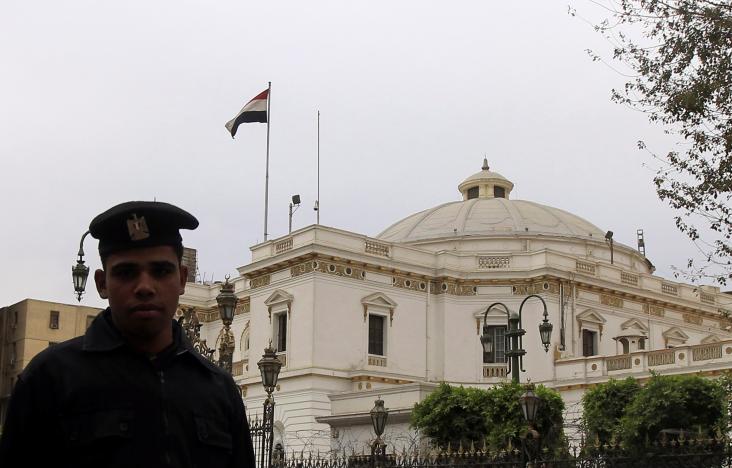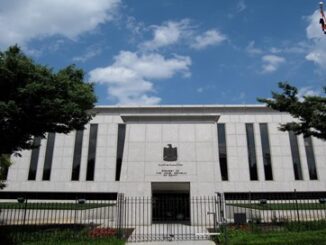
By the parliament’s approval, the bill is subject to a final vote.
Reuters reported Egyptian rights activists say that they are facing “the worst crackdown in their history amid a wider campaign under Abdel Fattah al-Sisi to erase freedoms won in a 2011 uprising that ended Hosni Mubarak’s 30-year rule.”
The bill bans any civil society work that does not fall under its regulation, restricts NGO activity to developmental and social work and introduces jail terms of up to five years for non-compliance.
In addition, under the new bill, the NGOs are also banned from conducting fieldwork or polls without permission or “from cooperating in any way with any international body without the necessary approval” which human rights groups say includes the United Nations.
A regulating agency that includes representatives of the military, the general intelligence service and the Interior Ministry will oversee the foreign NGOs.
In this context, Mohamed Zaree, Egypt program manager at the Cairo Institute for Human Rights Studies, said, “This law is unprecedented in its repression and is the state’s way of declaring war on human rights organizations.”
Egypt has accused some NGOs of receiving foreign funding to sow chaos.
Social Solidarity Minister Ghada Waly, whose ministry regulates the NGO sector, said: “The government will submit official comments on the law.” She did not elaborate further.
The parliament approved all 89 articles of the bill but sent it to the State Council for review and will hold a final vote on it later.
For the past two years, the government had been working on a similar bill, but 204 lawmakers drafted their own version, which the parliament began debating on Monday.
Reuters reported that the Legal Affairs Minister Magdi al-Agaty had asked MPs to consider the government draft, but was turned down by several members of parliament.
Later, Agaty said the government would submit notes on the parliament’s bill but there was no “conflict” with the parliament, and its Speaker Ali Abdelaal welcomed the government’s amendments.
At an earlier time, the human rights groups have criticized leaked drafts of the government’s bill” but said that the parliament’s version is much more stringent, including penalties of up to five years in jail and fines of up to 1 million Egyptian pounds ($65,573).”
In fact, Egypt’s constitution protects the rights of NGOs as it guarantees the right to form NGOs without prior approval.
Since late 2011, NGOs have felt targeted when the Egyptian authorities stormed 17 pro-democracy and rights groups, accusing them of joining a foreign conspiracy against Egypt.
Later in 2013, a court ruled the closure of several foreign NGOs groups, including U.S.-based Freedom House. Moreover, it gave jail sentences to 43 NGO staff including 15 Americans who had fled the country.
The crackdown against NGOs didn’t end but remained largely dormant until this year when a court in September approved a freeze on the assets of five human rights activists and three NGOs accused of receiving foreign funds.



